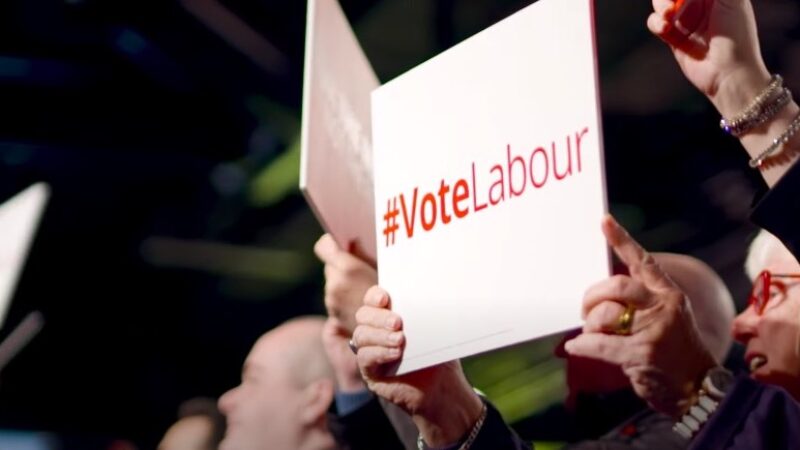
The American historian Christopher Lasch gave an early warning about the culture wars. Labour can learn a lot from his work. In The Revolt of The Elites, Lasch strongly critiques the emergence of an aristocracy of talent. It is dressed up as meritocracy but, in his view, it is little different from the aristocracy of old but without its sense of obligation. Lasch argues that this new globalised aristocracy, living in the cities and working in the knowledge economy, is not only far too removed from the views and values of their fellow citizens, but has more in common with each other.
Lasch forewarned of the consequences of the growing estrangement of elites from the wider population. He wrote that the referenda on European unification revealed a “deep and widening gap between the political classes and more humble members of society”. They “fear that the European economic community will be dominated by bureaucrats and technicians devoid of any feelings of national identity or allegiance”. Lasch understood that a “Europe governed from Brussels, in their view, will be less and less amenable to popular control”.
And he understood the cultural and political reaction to this kind of populist revolt. The reassertion of ethnic particularism in Europe and the decline of the nation state: “weakens the only authority capable of holding ethnic rivalries in check. The revival of tribalism, in turn, reinforces a reactive cosmopolitanism among elites.” It all sounds very familiar.
Labour Together is committed to the politics of bridge-building and the common good – and Lasch confirms this approach. Cultural divisions are never purely binary. There is complexity and paradox. New research by Global Future with YouGov confirm this. On issues of culture there are huge areas of consensus, and where there are areas of division they are more nuanced than popular narratives suggest.
Common ground
Take areas of consensus. When asked if it was “important to be attentive to issues of racial inequality and social justice”, four in five respondents agreed. This strong majority was shared across all demographic groups and across party affiliation. When asked whether sexual harassment poses a risk to women, a strong majority agreed – including more than half of men. When asked about whether Britain needed change to become a fairer society, without overhauling our current system, 68% of us agreed to some extent. This majority for social change included the majority of Conservative and Leave voters.
Nonetheless, there are also areas of consensus that one would regard as conservative or traditionalist too. 77% of us express pride in our history, believing that we have been a positive force in the world. This patriotism does not translate into denialism about Britain’s past as 68% also believe that Britain has done damage in the world. This traditionalism is also demonstrated in support for the monarchy, with 68% of us wanting to keep the monarchy – a majority opinion across left and right. On immigration, 60% of us do not favour weakening restrictions and 77% believe that there should be immigration but with some kind of restrictions.
This is not to say that divisions do not exist. In particular, how people voted in the EU referendum still remains the biggest predictor of their views on these issues. Indeed, this finding shows that issues of culture and identity remain salient in British politics. One can see stark similarities to Lasch’s description of elite cosmopolitanism in response to tribalism. However, even these divisions contain a nuance and complexity that confounds the strictures and stereotypes borne of culture war narratives on both left and right.
For example, 74% of Leavers agree that it is important to be attentive to issues of race and social justice but 40% of Remainers favour current or more restrictions on immigration. Only 8% of Leave voters favour a complete halt to immigration and just 4% of Remain voters favour open borders. `
This nuance exists regarding party affiliation too. Some 74% of Conservative voters believe that Britain has done damage in the past and 61% believe that most or a fair amount of white people have unconscious racial bias. However, just 6% of all people believe that most or all white people are racist and just 27% believe that most white people have unconscious racial bias. Meanwhile, 65% of Labour voters believe that Britain has had a positive impact on the world and 57% of Labour voters want to keep the monarchy.
On immigration, 60% percent of us do not favour weakening restrictions, but 48% of us believe that we ought to take more Ukrainian refugees – with just twelve percent thinking we should take fewer. This includes 30% of Conservative voters. Here we see a great deal of heterodoxy and nuance that confounds commonplace prejudices and myths.
This research demonstrates that there are clear areas of common ground that are both progressive and traditional in disposition. Voters on the right favour social justice, acknowledge discrimination, accept flaws in Britain’s past and want change to create a fairer society. Voters on the left support the monarchy, have pride in British history, do not favour revolution and oppose open borders. This presents Labour with an opportunity to speak to this common ground, be its voice and with this unity, build a broad national coalition around a plan for national reconstruction.




More from LabourList
Government announce SEND reform in schools white paper
SPONSORED: ‘Industrial hemp and the challenge of turning Labour’s priorities into practice’
‘A day is a long time in politics, so we need ‘action this day’’